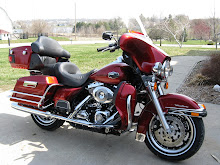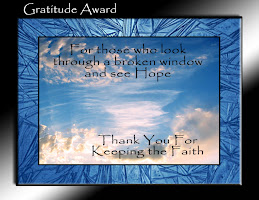Thank you all for responding with so much wisdom.
I too feel DARE has not lived up to its hype. I'm sure there are people that it has helped but drug use has escalated. Maybe some of the strategies were worthwhile but we need to look at outcomes and results not on just a feel good effort.
A reality is there are some kids no matter how much education an anti-drug tactics you show them they will become addicted. Type A personality, daredevil, something missing in their life, DNA or who knows what else drives some to try drugs and suffer addiction and with others the same strategies work to keep them away from this danger. This is something I have come to believe. Takes someone smarter than I to figure this one out.
A bunch of police officers, parents, teachers and other adults standing in front of kids telling them the horrors and danger of using drugs is only marginally effective at best. This does not mean I think that strategy should be abandoned. We just need to understand OUR limitations as adults relating to a young adult and child's world. Despite at times feeling helpless because our words seem to fall on deaf ears we can never give up talking. If we aren't standing up with this information it will be the same as delivering our children to the drug dealers on a silver platter.
Several people mentioned what I would call "peer counseling", getting someone close to their age in to counsel kids on their personal experience with using drugs and addiction. Myself, from personal experience I think this should be the next frontier. From personal experience speaking to students I could look at them when I was explaining our family experience and see the look in some kids faces that my words were drifting into space. But the one time that Alex went with me to speak to kids at a high school those very same kids were all eyes on him and intent. When Alex was talking I don't think I have ever felt so useless in a presentation, that was a good feeling for me about this subject. Truth is when he pulled his sleeves up and showed them his scars on his arms from surgery and needles I think I felt the room shiver.
I don't now how to get the peer counseling going on a larger scale but I think this is a strategy that needs to be worked. For myself, I have sent letters to school superintendents and high school principals in 5 neighboring school districts offering for Alex and I to speak with classes or even just troubled students. Not a single response, not even a no thank you. Anyone have any suggestions for us?
Everyone keep thinking; what we are doing with drug education today is not good enough. Sure wish I could turn all of this pain the last 7 years into wisdom that keeps another child and parent from experiencing what we all have experienced.
ps.: I'm not leaving out an age, 9-10 years old is not too young to begin talking seriously to kids about drugs or any other facts and dangers of life.
Subscribe to:
Post Comments (Atom)












3 comments:
Hi Ron, I agree with you that kids givemore credibility to peers than they do to adults, which is why peer counseling is optimal. Lauren and I spoke at an at risk area high school and it was the first year that the school did something other than bring in the police to speak with them about drugs and alcohol. It was also the first year the kids even paid attention or asked questions.
I think if you want to try and get out to more schools, you probably have to send out more like 50 letters to get responses. It is also good to call the schools and find out who is administering any substance abuse program that the school may be offering and approach that individual directly. Just some thoughts.. hope it helps.
I can't even believe that NONE of the schools even regarded your letter?? That is so incredibly sad!
I so completely agree with you Ron, that somehow trying to figure out how to make these kids listen is so important. I've been reading all these blogs, and my heart just breaks for all of us parents!! On my blog, I often muse about "what ifs", because it just kills me to see these kids and parents suffer so!
I agree that getting peers to talk to these kids is way more effective than us old farts - LOL!! But if the schools won't even acknowledge that you are trying to help??....
Somehow, us parents need to band together to make our voices heard. But how??? Let me think on this a little bit more - now I have some stuff rolling around in my head.
Hi Ron,
I have one very personal success story with D.A.R.E. and it is my own granddaughter. I remember how proud I was when she won a first place ribbon/medal for an essay she wrote for D.A.R.E. that was extremely moving. She was selected to read her essay in front of the entire school.
Given that "Nana" worked in the field she shared it with me and I had it framed. It still hangs in my office.
I know that it's not just the D.A.R.E. program that influenced her, as her father and mother were both drug users (father died quite young as a result of his drug/alcohol use). She had it pretty rough growing up in an extremely chaotic household. Thankfully, my home was a drug and alcohol-free zone and she spent a lot of time with us in the first few years of her life. She also learned alot from us about the dangers of drugs.
I am so grateful that I began my recovery before she was born and she never had to see me in the throes of my addiction.
She is and has always been extremely anti-drug (and will turn 21 next week) and I'd like to think that this can be attributed to a variety of things, including D.A.R.E., not wanting to be like her parents, and our ongoing sharing with her. I am extremely proud of her.
Parents cannot "outsource" their kids' drug education. Fortunately, there are some fabulous tools out there to help them, and these can all be found at www.drugfree.org.
As for peer-to-peer support and education, I believe this approach is very beneficial. Kids listen to other kids! The Partnership at Drugfree.org has a great web site for teens that can be found at www.checkyourself.com. It's very practical and sounds very big brother, peer-to-peer, instead of authoritarian and parental.
Thanks for this blog and for your commitment to helping teens and parents!
Post a Comment